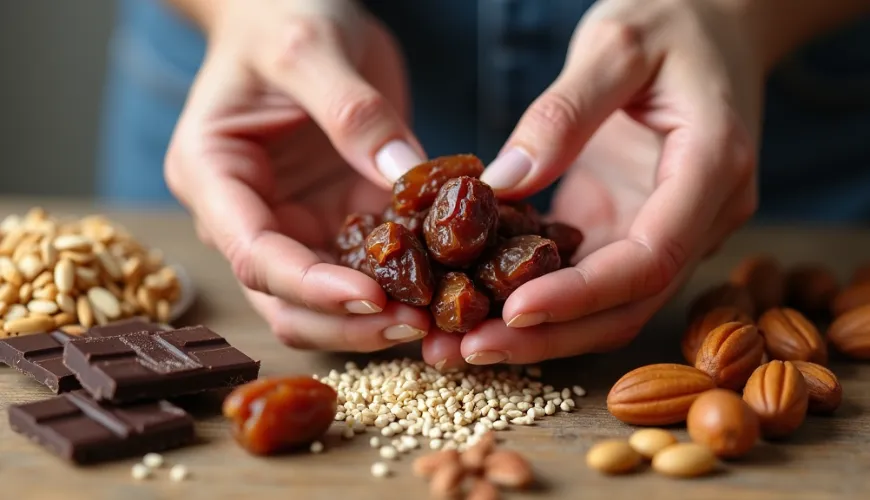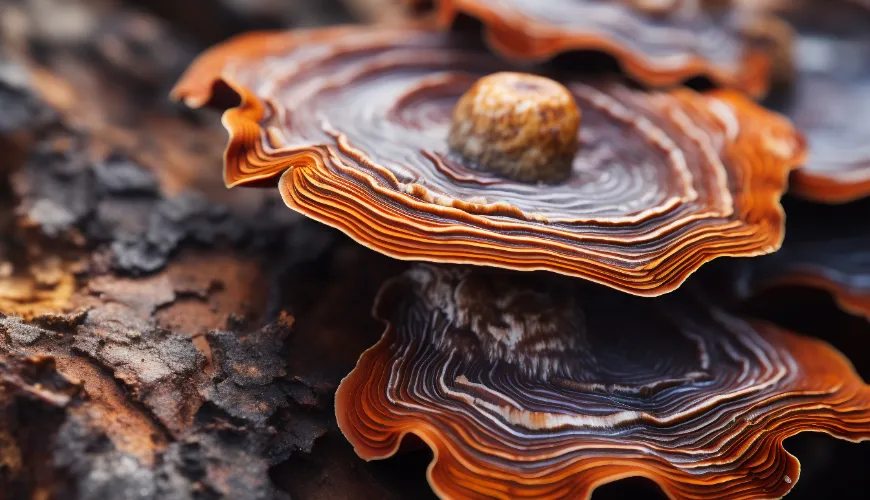
Discover Ways to Curb Your Sweet Cravings Without Restriction

How to Tame a Sweet Tooth and Why It's Worth It
Modern lifestyle offers us sweet temptations at every turn. From morning coffee with sugar, to a cookie snack, to the evening "reward" of a chocolate bar. Many people struggle with a constant craving for sweets and often ask: How do I get rid of a sweet tooth? Or at least: How can I limit it without feeling frustrated or constantly deprived?
Surprisingly, craving sweets is not just a matter of willpower. It often involves a combination of habits, emotions, hormonal imbalance, and the composition of our diet. Let's take a closer look at what's behind it—and how to tackle it.
Sugar and the Brain
It's no coincidence that sugar induces feelings of pleasure. Consuming it releases dopamine in the brain—the same neurotransmitter released during other "rewarding" activities, such as sports or even some addictive substances. This mechanism is natural and was meant to help us survive during evolution—sweet foods signaled high energy content. But today, we have so many of these signals that the brain is in a constant state of overload.
Regular and excessive consumption of sugar can lead to addictive behavior. It's no wonder that discussion forums and online communities are buzzing with questions like How do I stop eating sweets? or How do I break a sugar addiction?
What Discussions and Others' Experiences Say
While reading various discussions on how to get rid of a sweet tooth, several themes recur. People share that the biggest crises come in the evening, often after a hard day. Others describe that the body demands sweets as a reward or comfort. There are also posts where users admit that sweets are like a drug to them and that withdrawal symptoms after quitting sugar were very strong.
The experience of Ms. Jana, who shared her story on one of the popular Czech forums, is enlightening: “I cut out sugar because I had headaches, was tired, and constantly had cravings. The first three days were the worst, but then my skin, sleep, and mood improved. Now I only have chocolate occasionally—and only quality dark chocolate."
These personal testimonies highlight an important fact: getting rid of a sweet tooth is possible, but it requires patience and understanding of one's body and emotions.
What Influences a Sweet Tooth
A craving for sweets is definitely not just a result of weak willpower or lack of self-control, as we often think—it's much more complex. The main culprit is often blood sugar imbalance—when we mainly consume simple carbohydrates and don't get enough protein or fiber, blood sugar levels fluctuate like a rollercoaster. The result is fatigue, irritability, and, of course, a strong desire for something sweet to "kick us up."
Adding lack of sleep gives us another piece of the puzzle—the body is tired and looks for a quick source of energy, which sweets provide, at least temporarily. Emotions also play a big role: stress, bad mood, or loneliness often drive us to sugar because it can temporarily improve mood—the problem is that in the long run, it can cause the opposite.
And then there's habit—sometimes it's simply a learned ritual. If you've had something sweet after lunch for years, your body starts to take this routine as the norm and automatically demands it. So, when the craving for sweets comes, it might be time to stop and think about whether it's really a craving or something more.
How to Help Yourself—Practical Tips That Work
The good news is that there are many simple steps to limit a sweet tooth without drastic diets or torturous deprivation:
- Eat regularly and well—focus on complex carbohydrates, proteins, and healthy fats. For example, oatmeal, legumes, seeds, and avocado can satiate and maintain stable blood sugar levels.
- Replace sugar with healthier alternatives—if you need something sweet, try dates, unsweetened dried fruits, or dark chocolate with a high cocoa content.
- Hydration is key—sometimes we confuse a craving for sweets with thirst. Drink a glass of water and wait a few minutes.
- Exercise as medicine—even a short walk improves mood and helps reduce a sweet tooth. Exercise also promotes the production of endorphins, which replace the "rewarding" effect of sugar.
- Get enough sleep—sleep regulates hunger and satiety hormones. Lack of sleep increases the craving for high-calorie and sweet foods.
- Mindfulness and working with emotions—be aware of when and why you crave sweets. Is it hunger, boredom, fatigue, or sadness? Sometimes it helps to wait a moment and the craving will disappear on its own.
Try our natural products
Sweets in a Sustainable Lifestyle
Interestingly, many who embark on a healthier lifestyle often find that their craving for sweets significantly decreases. People who start eating more plant-based foods, incorporate whole grains, nuts, and fermented foods into their diet often notice that their desire for sugar weakens.
You don't have to give up all sweets forever. It's more about finding a balance and teaching your body that sweet pleasure can also come in the form of date desserts, banana pancakes, or homemade granola without added sugar.
Popular natural alternatives include coconut sugar, maple syrup, or agave. They are still sweet and caloric but have a lower glycemic index and often other nutritional benefits. The rule still applies: less is more.
When a Sweet Tooth Persists
If, despite all efforts, the craving for sweets doesn't change, it might be time to look deeper. Sometimes there may be a deficiency of certain minerals—such as chromium or magnesium, which play a role in regulating blood sugar. A consultation with a nutritionist or doctor can also help.
More serious cases, where the consumption of sweets is completely unmanageable, may be related to psychological factors or eating disorders. In such cases, it is important to seek professional help. As nutrition specialist Dr. Kateřina Cajthamlová says: "Change doesn't happen overnight. It's a process we need to understand and embrace."
A craving for sweets is natural. It is part of human biorhythms, evolution, and cultural habits. But if it turns into an addiction or worsens health, it's time to do something about it. It's not about demonizing sugar but learning to handle it consciously. Because like most things in life—sweets taste best when they are rare.



